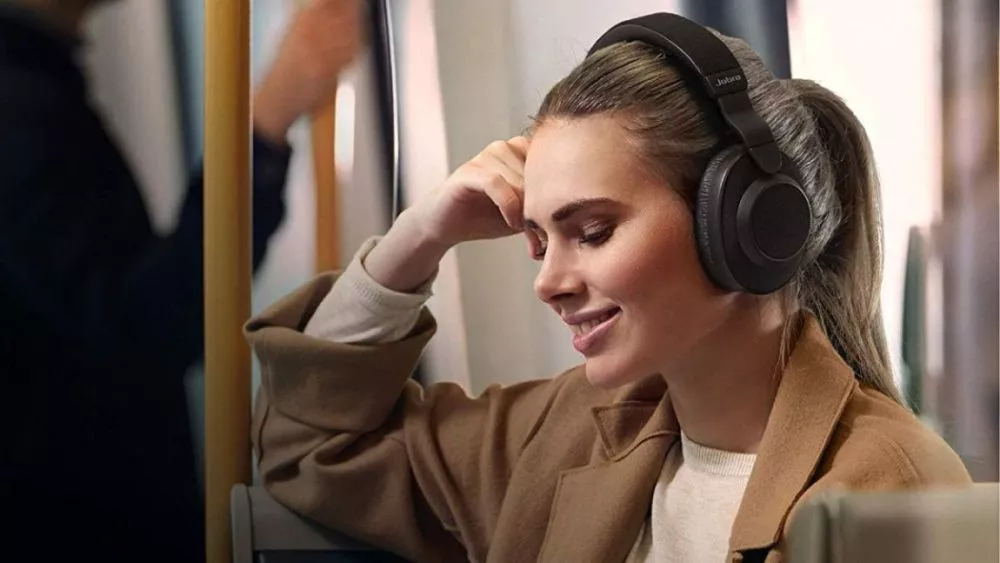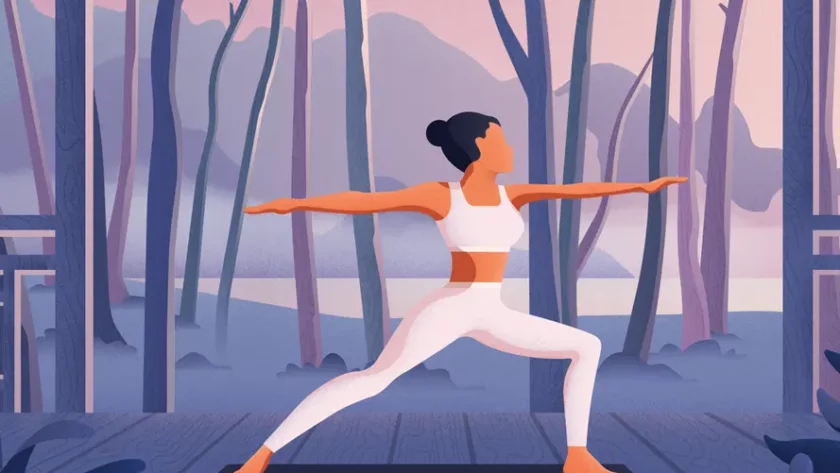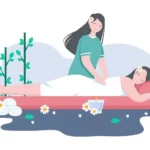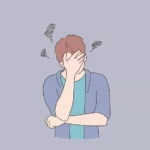Over View
Contents
Relaxation techniques to reduce stress are one of the best ways, where yoga, meditation, deep breathing, etc play a vital role in it.
Stress affects everyone, whether it is gender, culture, young or old, rich or poor (1) it is typically a tied situation, and once its resolves, it goes away.
Anxiety is a feeling of fear, or worry, it can occur as a reaction to stress, and it can also happen without any clear trigger (2).
Stress is one of the leading causes of mental issues like anxiety, depression, and other health issues including:
- Heart disease
- increase the risk of thyroid issue
- diabetes
- high blood pressure
- headache is common in these people
- weak immune system
- the person will have difficulty sleeping
Relaxation techniques are not only bringing peace or enjoying, but it is also a process that decreases the stress effects on your mind and body.
Studies showed that relaxation techniques reduce cortisol levels in patients, leading to a decreased experience of stress.
There are the top 12 relaxation techniques to reduce stress which work instantly which include:
Progressive Muscle Relaxation
Physical tension in the muscles can also contribute to feelings of stress, and the idea of this is to relax different muscle groups in the body.
To do PMR techniques, you have to follow these steps include:
- Find a slient and comfortable place where you can sit or lie down
- close your eyes and focus on your breath
- starting with your feet, tense the muscles in your feet and hold for a few seconds
- relax the muscles of your feet and concentrate on the feeling of relaxation
- move up to the muscles in your leg, tensing and comforting them the same way
- continue moving up the body, tensing and relaxing the muscles in your arms, chest, and back
- end with the muscles in your face, tensing and relaxing them
- take a few deep breaths and focus on the feeling of relaxation in your body
Being patient and giving yourself time to relax and let go of tension is vital.
This routine is repeated until participants acquire complete relaxation (3)
Yoga

Really can manage stress and negative emotions, by increasing positive emotions and helping mental balance (3)
In a study, it was found that during 12 weeks of yoga saw greater improvement in mood and greater decreases in anxiety, compared to the walking group.
Unlike other sports or exercises, yoga is to control the mind and central nervous system (4)
Yoga is also an exercise, which is the management of the body and the mind, however, Exercise is not the only limit to gymming, running, and cycling.
If you are a beginner in yoga, you may feel fine the first day of yoga, but the next day, it may lead to discomfort and pain.
Meditation
It is a process in which you focus on one thing like an object, breathing, and mantra with a calm mind, and can redirect your thoughts.
Harvard University, says that regular meditation practice can help with stress by changing brain responses.
Research also reveals that regular meditation can help by changing how the brain responds to stress and anxiety.
A study found an 8 weeks meditation program showed positive changes in the brain, which allied with learning, memory processing, and emotion regulation in people.
To do meditation you have to follow these steps which include:
- Choose place: Choose a relatively silent place with minimum distraction which will keep your focus on the path.
- Sit position: Sit on Dhyaan mudra, which is the best posture to meditate, if you can’t concentrate, start by saying “Om”
- Take a comfortable seat, not in bed, on the floor with a mat.
- Close your mind: When you’re ready gently close your eyes. take a moment and notice any sounds in the environment. notice your thought and emotions.
- Focus on breathing: Most important part of meditation, focus on breathing, don’t think of anything else, just breathe in, and breathe out.
If you experience any type of distraction start saying “Om” which cuts the disturbing sound and makes your focus on “Om”.
Massage
In a study, where massage followed one participant, and Reiki followed other participants (5).
The result shows that massage followed by Reiki application was effective in reducing stress levels and improving quality of life
Massage helps in lowering your stress hormone cortisol and increases feel-good hormones and endorphins (6)
Which relaxes the muscles, and improves blood circulation, promoting sleep, and relaxation, which overall reduces stress.
Remember, that different therapist and their techniques are important it may take some time to take comfort in.
Deep Breathing
Deep breathing is one of the most recommended techniques for all, it involves taking slow, and deep breaths from the lungs
It’s also helpful in reducing anxiety because it allows you to focus on the present moment and bring consciousness to the breath (7)
And when you focus on breathing you promote relaxation, which calms down mind woes (8)
Breathing exercises day by day enhance your lung capacity to take more oxygen and help people with COPD and asthma.
According to the British Lung Foundation, it can help clear out the mucus from your lungs after pneumonia, which allows more air to circulate.
Tai Chi
It is a Chinese martial art that includes slow, deep breathing and controlled movements, similar to yoga, and meditation.
Study reveals that tai chi manages stress, and anxiety as exercise because it also involves meditation and focused on breathing.
Tai Chi could reduce mental and emotional stress, reduce salivary cortisol levels, and improve mood states (9)
So focusing on breathing and being present in the moment can help you to calm your mind and bring a sense of peace and relaxation (10)
Essential Oil

Aromatherapy is a natural remedy for stress relief, where inhaling the aroma of essential oil, which extract from plants to promote health.
It’s believed to be effective in order to relieve stress or feelings of anger during waiting time.
The majority of the studies showed a positive effect of aromatherapy in reducing women’s anxiety during the first stage of labor.
Lavender oil is one of the popular essential oil for reducing stress.
Other studies have shown that lavender oil aroma significantly reduced anxiety during the first stage of labor.
Lavender oil may act as an anti-depressant, and anti-flatulent, and also treat infertility, infection, and periods symptoms (11) (12) (13) (14)
Biofeedback
Biofeedback is a technique that involves using special equipment to monitor or control some of your body’s functions including:
- Heart
- blood Pressure
- muscle tension
A Thailand-based study has shown that biofeedback is effective in reducing anxiety and managing stress among undergraduate nursing students.
It is also a cost-effective tool that helps nursing students to manage mental issues including stress, anxiety, and depression (15).
Because it allows people to learn how to recognize body changes or physical symptoms of stress and anxiety, by monitoring the person.
Autogenic Training
It is also a relaxation technique, where through visualization and body awareness you promote relaxation, which calms down your tension.
According to the Healthline site, It is also helpful in managing daily stress, and it can even be helpful during panic attacks.
Remember that everyone’s experience with autogenic training is asunder, and it may take some time to find comfort, and relaxation.
Guided Imagery
It is a relaxation technique that involves using the imagination to create positive images to promote relaxation and reduce stress.
To find peace in this technique, you should do this:
- Find a slient and comfortable place to sit or lie down
- close your eyes
- start taking deep breaths
- think you are in a peaceful place or situation
A 2018 study result, showed that guided imagery may help decrease pre-surgery anxiety, similar to Autogenic Technique.
As you visualize this place, try to engage your senses as possible, including sound, smell, taste, touch, and sight (16)
Music Therapy

Listening to songs increases the production of the hormone called dopamine (a feel-good hormone)
One study revealed the positive effects of music therapy on reduced levels of stress, depression, and anxiety in cancer patients (17).
According to the GCBH (global council on brain health) report, that music brings a positive effect by improving mood and decreasing stress.
Stanford University researchers have said that “listening to music to be able to change brain functioning to the same extent as medicines.” also become a tool to reduce stress.
Music also brings other health benefits which include:
- Bring a smile to face
- boost performance
- decrease fatigue
- work as a motivation
- improve focus
- ease pain
- Work as a Therapy
A 2017 research revealed that listening to music, particularly classical combined with jazz, had a positive effect on depression symptoms.
Hydrotherapy
It is an alternative medicine, which involves comprises water use for the relief of pain (18)
Compared to music therapy, it is a more significant effect in reducing stress symptoms including pain, and in improving mood (19)
There are several pros of hydrotherapy which include:
- helps in the elimination of waste
- loose tense muscle
- relaxation
- enhance metabolic rate
- hydrate skin, and muscle tone
- boost immune system
- stimulating circulation
Researchers believe that hot showers lead to the release of a hormone called oxytocin, which reduces stress, and anxiety. that I personally experienced.
Hydrotherapy can be done in a pool, spa, or hot tub which involves activities including – swimming, or simply soaking in warm water.
During this, it allows you to focus on the present moment and let your stress-related thoughts or worries.
Relaxation Techniques For Sleep
Sleep and stress are allied with each other, where stress makes it difficult to fall asleep, and other hand lack of sleep leads to stress (20)
Many adults experience short-term (acute) insomnia, which lasts for days or weeks, as a result of stress.
On the other hand, acute insomnia is also known as stress-related insomnia (21)
Insomnia is the most common sleep disorder, where person hard to fall asleep, which affects about 35% of adults.
All these relaxation techniques’ benefits depend on you that how fast, comfort, deep you are going those techniques.
So make sure to keep calm, focus, and feel relaxed to promote overall well-being.



